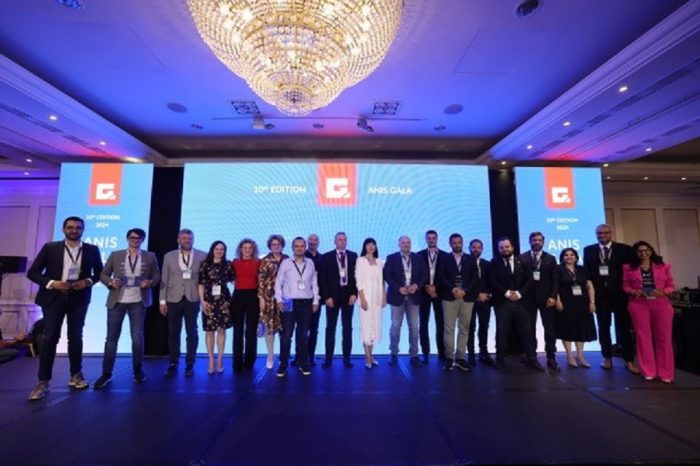Understanding coaching inside out: what it is and what it isn’t

Opinion by Raluca Andreea POPA,PhD, ACC, Leadership Coach Internationally Certified
In a world where individuals and organizations constantly seek ways for improvement, coaching has emerged as a potent tool for unlocking human potential. Coaching stands at the intersection of guidance, growth, and goal attainment. However, amid its increasing popularity, misconceptions often cover the essence of coaching, leading to diminished understanding and underutilization of its benefits. This article aims to elucidate the true nature of coaching, tracing its evolution in the last years, challenging common myths, and presenting compelling statistics that underscore its efficacy.
The 2023 Global Coaching Study by the International Coaching Federation, based on 14,591 responses from 157 countries, shows a significant growth in the coaching profession. In 2022, there were over 100,000 active coach practitioners worldwide, generating $4.564 billion in coaching revenue, a 60% increase of the coaching industry from 2019, signaling robust growth and demand.
Despite the COVID-19 pandemic, coaching expanded robustly between 2019 and 2022. The number of coach practitioners grew in all regions, most notably in the emerging regions of Asia (+86%), the Middle East and Africa (+74%), and Eastern Europe (+59%). Eastern Europe alone had 10,000 coaches, with 89% active, and Western Europe had 30,800 coaches, with 92% active. Total revenue in Eastern Europe totaled $161 million (3.5% of the industry) and in Western Europe $1.421 billion (31% of the industry), also growing for both regions.
The evidence from the 2023 ICF Global Coaching Study is that by late – 2022, the coaching industry had not just recovered ground lost in the initial stages of the COVID-19 pandemic but also had gained some from the experience.
Focusing on Romania and coaching consumers, another research study, the ICF Global Consumer Awareness Study 2023, discovered that 88% of people who tried coaching in Romania were happy with it. They reported that it helped them become more self-aware, reach their goals, and feel better overall. Interestingly, the study also found that many people don’t know much about coaching. In Romania, 33% of the people surveyed had never even heard of professional or life coaching. Globally, this number was 27%.
When asked about the impact of coaching, those who had tried it in Romania reported several positive changes. Most commonly, they said coaching helped them improve their communication skills (42%) and feel more confident (38%). It also boosted their productivity (37%), improved teamwork (36%), and helped them balance work and life better (33%). Additionally, coaching was credited with enhancing business management strategies (30%) and opening up new career opportunities (28%).
We saw that coaching is a growing industry and, despite its benefits, people still do not have a clear idea about what coaching is.
What is Coaching?
Coaching embodies a partnership between coach and coachee, characterized by trust, confidentiality, empathy, and accountability. Unlike traditional mentorship or counseling, coaching operates on the principle that individuals possess the answers within themselves. Through skillful questioning, coaching instruments, active listening, coaches guide coachees in exploring their aspirations, identifying obstacles, and devising actionable strategies for progress. The coaching process empowers individuals to transcend limitations, leverage strengths, and navigate challenges with resilience and clarity.
Today, coaching encompasses diverse modalities, including executive coaching, life coaching, and leadership development, catering to a broad spectrum of personal and professional needs.
The main coaching areas in 2022 according to ICF Global were leadership (34%), executive coaching (17%), and business/organizations (13%). Business coaching, encompassing these areas along with small business (3%), has seen a steady rise as a specialty, with 67% of coaches identifying it as their main focus in 2022.
In 2022, slightly more than half of coach practitioners indicated that their clients are primarily managers (31%) or executives (25%). This combined total of 56% reflects a rise from 2019 (52%), emphasizing the growing significance of coaching and recognition of its advantages.
Often, coaching is mistaken for other developmental processes.
What Coaching is Not:
Therapy or Counseling: Coaching focuses on helping you move forward and achieve your goals, while therapy deals with healing past wounds and overcoming emotional struggles. For instance, if someone is struggling with anxiety due to a past trauma, they might seek therapy to address and process their feelings and experiences. Meanwhile, for example a marketing leader, seeks coaching to increase performance. He/She wants to improve leadership skills and enhance team management abilities to qualify for a promotion. In coaching sessions, the coach helps the leader set specific goals, develop action plans, and provides accountability to ensure progress. They focus on strategies to overcome obstacles and achieve the set objectives. The frequency of therapy sessions could be 1-2 per week, meanwhile coaching sessions typically occur every 3-4 weeks. Therapy is more focused on the past, while coaching emphasizes present and future goals.
Consulting: Coaches don’t give you the answers or tell you what to do. Consultants are experts in their field who provide specific solutions based on their knowledge and experience. For example, if a company needs help with their marketing strategy, they might hire a marketing consultant who would analyze their market and competition and then provide a detailed plan of action. In contrast, coaches help you uncover your own insights and develop your own solutions through thoughtful questioning, instruments, and reflection. For instance, a coach working with an individual seeking career advancement might help them explore their strengths, values, and aspirations to create a personalized plan for professional growth.
Mentoring: While mentors share their experiences and offer perspectives based on their own journey, coaches do not necessarily have experience in the same field as you. For example, a mentor in the field of software development might share insights gained from their years of experience working in various tech companies. However, a coach for someone in software development may not have direct experience in coding or software engineering. Instead of imparting their wisdom, coaches empower you to tap into your own strengths and resources to find solutions that are aligned with your unique circumstances and goals. For instance, a coach might help a software developer explore their career aspirations, improve their time management skills, or navigate workplace challenges effectively, without needing to have first hand experience in coding or software development.
Parenting: Coaching is not about someone telling you what’s best for you, like a parent might. It’s about helping you discover what’s best for yourself and supporting you as you work towards it. While parents may offer guidance and support, coaching involves a more collaborative relationship focused on self-discovery and personal growth.
A Quick Fix: Coaching is not a magic solution that will instantly solve all your problems. It’s a process that requires time, effort, and commitment. While coaching can provide valuable insights and support, lasting change often requires sustained effort and dedication over time.
In conclusion, coaching has become a transformative force in personal and professional development, offering individuals and organizations a pathway to realize their fullest potential. As evidenced by the remarkable growth of the coaching industry, coupled with the overwhelmingly positive feedback from coaching consumers around the world, it’s clear that coaching has become an indispensable tool for navigating the complexities of modern life and achieving meaningful goals.
In a world where we always need to change and grow, coaching is like a guiding light. It helps us move towards a future where people do well, companies succeed, and everyone can be as good as they can be.












